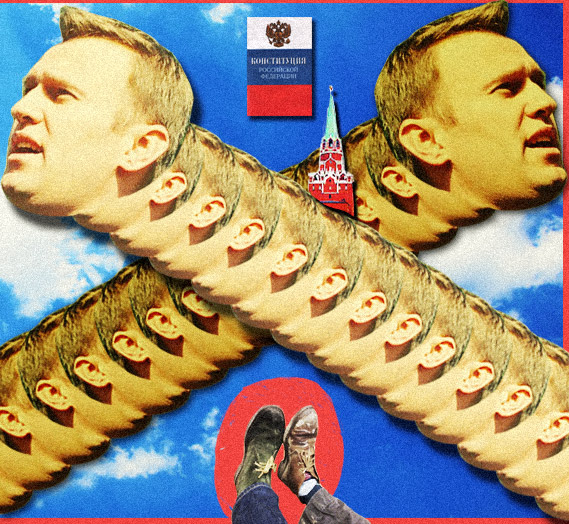The rally that ruined shoes
At yesterday's protest rally, people were united by a desire not to demand, and the intention to perform

Rebellious hipsters, a Facebook action gets people off their asses, and now it is called “The rally that ruined shoes” — the essence, however, does not change: according to various estimates, between five and eight thousand people came out yesterday to Chistoprudny Boulevard and stood there for two hours in the mud — some ankle-deep, and some knee-deep.
These people were brought to the Boulevard by social networks, in which all Sunday and Monday clear evidence of falsified election results kept appearing. These reports haven’t changed the results, but they have changed the game. Now, anyone interesting in knowing can find out exactly who cheated where, and at what stage.
What makes this story amazing is not only, or rather, not so much, the fact that Facebook made thousands of people show up, or that for some time now, Facebook has been forcing some people to study their election laws, become trained in them, and participate in compliance with these own laws.
People are excited, and they are forced to leave the rally. This is not happening because all the cheating is something new, but because people take part in the process, fighting and observing the scams. For the first time on such a scale, citizens have decided not to recover from fraudulent elections, but instead to integrate with them. By voting, observing and demanding that their votes are calculated correctly.
From five to eight thousand people gathered yesterday, in the hope that someone will hear them. They listened to Navalny, not asking him to solve their problems: Navalny misheard them, but, when you listen to the recordings of many, he winced, as usual. People came to the area with an intention - not to demand fair elections, or to make elections fair. People are tired of not knowing the law. When a police officer, a member of the election commission, or anyone else who seems to be in charge, tells you: “You have no right” — he does it so convincingly that, if you do not know the law, it is depressing. What happened on Sunday broke with this tradition. Those who caught others red-handed, Chief electoral officers, they were far more proficient in the law than those they apprehended or exposed. Ordinary people repeated the success of Ilya Varlamov and Alexey Navalny, by knowing the law and not being afraid to use it.
And it is a strange idea that almost no-one was removed from the scene, something that usually happens when it comes to shouting “Russia Without Putin!”. Obviously, this was not just felt by the crowd, but by the police as well. During the rally, the police behaved perfectly: they let more people in than the 300 that were allowed, I personally got help getting over the fence and the police officer told be “Just go away soon,” there was no hitting, nobody was missing. Until the moment that the habit, distracted from the need to comply with the law, made the mob move to Lubyanka.
It’s clear that after standing in the rain and dirt for two hours, all you want is a revolution. But if the idea is that compliance with the law is demanded, this should work mutually, and only then you will be noticed. If you want the traffic police to stop taking bribes, stop giving them. If you don’t want to be detained, don’t stage illegal rallies. If you want your suffrage protected, care for it yourself, don’t demand it to be done for you. It’s the hardest part.
And in this election, people no longer require an abstract implementation of the law. They now collectively monitor compliance.
And this is the only thing that works (not always, but at least sometimes). The State did not intend and does not intend to enforce the constitution and laws, and demanding if from the State is possible, but meaningless.
Prior to March 2012 is the time to study and practice the law on elections to its length and breadth, in order to register as an observer, member of the electoral committee or simply as a press representative at a polling station. From five to eight thousand people with spoiled shoes should be enough to cover all of Moscow's territory. And the rest will catch up.


